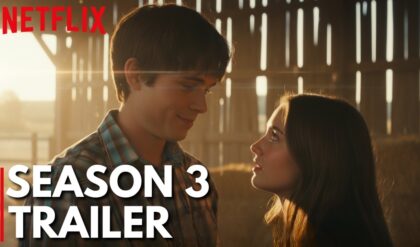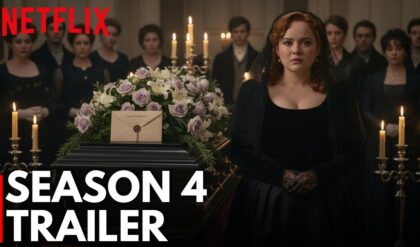Ubisoft’s ‘AAAA’ Disaster: Gamers Slam Creepy Facial Animations, Beg for ChatGPT to Rescue the Wreck!
Ubisoft, a titan in the gaming industry known for blockbuster franchises like Assassin’s Creed and Far Cry, has long prided itself on pushing the boundaries of interactive entertainment. In recent years, however, the company has faced mounting criticism for what many gamers perceive as a decline in quality—particularly when it comes to facial animations. The latest chapter in this saga revolves around Ubisoft’s ambitious claim of delivering “AAAA” experiences, a term coined to suggest a step beyond the traditional “AAA” standard of high-budget, high-polish gaming. But instead of awe, Ubisoft’s recent releases have inspired ridicule, with players roasting the company’s subpar facial animations and jokingly suggesting that even artificial intelligence like ChatGPT could do a better job salvaging the mess. As of March 24, 2025, the backlash has reached a fever pitch, raising questions about Ubisoft’s direction and whether it can reclaim its former glory.
The ‘AAAA’ Promise: What Went Wrong?
The “AAAA” label first gained traction when Ubisoft CEO Yves Guillemot used it to describe Skull and Bones, a pirate-themed action-adventure game that launched in February 2024 after over a decade of development hell. Guillemot defended the game’s $70 price tag by calling it a “fully-fledged” experience that would “deliver in the long run.” The term was meant to signal unparalleled ambition—bigger budgets, grander scopes, and cutting-edge technology. Ubisoft doubled down on this rhetoric with upcoming titles like Assassin’s Creed Shadows, set to release in 2025 after a delay aimed at ensuring polish.
Yet, the reality has fallen far short of the hype. Skull and Bones arrived to lukewarm reviews, with players and critics alike panning its dated graphics, repetitive gameplay, and, most notably, its atrocious facial animations. Social media platforms like X lit up with clips of characters sporting lifeless expressions, awkward lip-syncing, and uncanny-valley vibes that felt more like a throwback to the PlayStation 3 era than a next-gen masterpiece. One viral video compared Skull and Bones’ animations to those of Assassin’s Creed IV: Black Flag—a game released in 2013—and concluded that the decade-old title looked better. For a supposed “AAAA” game that reportedly cost $200 million to develop, this was a damning indictment.
The criticism didn’t stop there. Fast forward to 2025, and early footage of Assassin’s Creed Shadows has reignited the debate. Despite Ubisoft’s promise to address past shortcomings, leaked gameplay snippets reveal characters with stiff, robotic faces that clash jarringly with the game’s otherwise stunning visuals. On Reddit, users have described the animations as “worse than AC Unity’s infamous bugs,” while X posts have called them “a nightmare fuel fever dream.” The consensus? Ubisoft’s “AAAA” dream is crumbling under the weight of its own overhyped expectations.
A History of Animation Woes
Ubisoft’s struggles with facial animations aren’t new. The company has faced similar critiques for years, with titles like Assassin’s Creed Valhalla (2020) and Watch Dogs: Legion (2020) drawing flak for wooden expressions and poor lip-syncing. Even Assassin’s Creed Unity (2014), a game lauded for its detailed world, became a meme factory thanks to its glitchy, bug-eyed character faces at launch. While Ubisoft has occasionally delivered standout moments—think Assassin’s Creed Syndicate’s polished cutscenes or Unity’s cinematic kisses—these highs have been inconsistent.
So why does a billion-dollar studio keep stumbling in this area? Industry observers point to a few factors. First, Ubisoft’s reliance on its proprietary Anvil engine, while versatile for open-world design, may not be optimized for the nuanced motion capture (mocap) technology that competitors like Naughty Dog (The Last of Us) or Rockstar Games (Red Dead Redemption 2) have mastered. Second, the sheer scale of Ubisoft’s games—massive worlds packed with NPCs—might stretch resources thin, leaving facial animations as a lower priority compared to gameplay or environmental design. Finally, some speculate that Ubisoft’s focus on quantity over quality, churning out annual releases or live-service titles, has diluted the polish once seen in its flagship games.
Whatever the reason, gamers aren’t buying excuses anymore. In an era where titles like Cyberpunk 2077 (post-patches) and God of War Ragnarök set the bar for lifelike character performances, Ubisoft’s offerings feel increasingly out of touch.
The ChatGPT Meme: A Cry for Help?
Amid the roasting, a peculiar sentiment has emerged: “ChatGPT could save this mess!” It started as a tongue-in-cheek jab on X, with users suggesting that an AI chatbot could somehow script better dialogue or even fix Ubisoft’s animation woes. One post quipped, “If ChatGPT can write a coherent story, surely it can teach Ubisoft how to make a face move naturally.” Another added, “Ubisoft’s animators need to ask ChatGPT for a tutorial on human emotions.”
While obviously hyperbolic—ChatGPT is a language model, not a mocap expert—the meme reflects deeper frustrations. Gamers feel that Ubisoft, with its vast resources, should be leveraging modern tools, whether AI-driven procedural animation or advanced mocap, to match industry standards. Instead, the company seems stuck in a rut, recycling outdated techniques while charging premium prices. The “ChatGPT fix” has become a rallying cry for fans who want innovation, not just bigger maps or fancier marketing buzzwords.
Interestingly, Ubisoft isn’t entirely averse to AI. In 2023, the company unveiled Ghostwriter, an AI tool designed to assist scriptwriters by generating NPC dialogue. While it’s unclear if this tech has influenced recent titles, it hasn’t silenced critics who argue that Ubisoft’s problems go beyond writing. Facial animations require a blend of artistry and tech—mocap data, rigging, and real-time rendering—that AI alone can’t fully solve without human oversight. Still, the ChatGPT meme underscores a broader point: gamers expect a company touting “AAAA” credentials to embrace cutting-edge solutions, not deliver half-baked results.
Community Backlash and Ubisoft’s Response
The backlash has been relentless. On Reddit’s r/ubisoft and r/assassinscreed, threads with hundreds of upvotes lament the “insane downgrade” in animation quality, with users sharing side-by-side comparisons of older titles like Assassin’s Creed Origins versus newer ones like Star Wars Outlaws (2024). X posts echo the sentiment, with hashtags like #UbisoftFail trending alongside clips of bugged-out faces. Some fans have even accused Ubisoft of prioritizing microtransactions and DEI (diversity, equity, and inclusion) initiatives over core gameplay polish—a narrative fueled by controversies like Assassin’s Creed Shadows’ depiction of Yasuke, a Black samurai.
Ubisoft hasn’t stayed silent. In November 2024, Assassin’s Creed executive producer Marc-Alexis Coté admitted to Eurogamer that the company’s portfolio has suffered from “a perceived inconsistency in quality.” The delay of Shadows to February 2025 was framed as a chance to “flip that script” and deliver the excellence players demand. Yet, skepticism remains. Past promises of “fixes” post-launch—like Skull and Bones’ free trial or Unity’s patches—haven’t fully restored trust. Gamers want results, not apologies, and the early Shadows leaks suggest Ubisoft still has work to do.
Can Ubisoft Recover?
The stakes are high. Ubisoft’s stock has taken hits in recent years, and its reputation hangs in the balance as competitors like CD Projekt Red and Sony’s first-party studios raise the bar. To turn the tide, Ubisoft could invest in next-gen mocap tech, overhaul its aging engine, or scale back its sprawling scope to focus on polish. Hiring top-tier animators from studios like Naughty Dog or partnering with AI firms for procedural tools might also help.
For now, though, the “AAAA” label feels like a punchline. Gamers aren’t just roasting Ubisoft—they’re pleading for a return to form. Whether it’s Assassin’s Creed Shadows or the next big project, Ubisoft must prove it can deliver more than hype. If not, the cries for ChatGPT to “save the mess” might evolve from a meme into a grim prophecy of a once-great studio lost to irrelevance. As one X user put it, “Ubisoft’s faces are so bad, even my Sims look more human.” Ouch.





